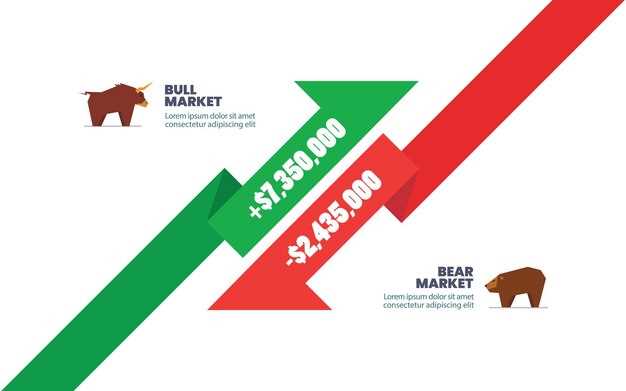
Understanding the nuances between Fair Market Value and Replacement Value is crucial for anyone involved in the appraisal process, whether you’re buying, selling, or insuring items such as cars. Both types of values serve distinct purposes and can significantly impact financial decisions. This guide will elucidate each concept, helping you navigate various scenarios effectively.
Fair Market Value is defined as the price that a willing buyer and a willing seller would agree upon in an open market. By contrast, Replacement Value refers to the cost of replacing an asset with a similar one at today’s prices. Understanding these definitions is vital for determining accurate valuations and making informed decisions regarding asset management.
Both types of values can apply to a range of assets, but they are especially relevant in the context of vehicles. When appraising a car, for example, the Fair Market Value might consider factors such as the car’s condition, mileage, and market demand, whereas Replacement Value focuses on what it would cost to buy a similar vehicle today. Knowing the differences can guide you in making sound financial choices and ensuring proper insurance coverage.
Understanding Fair Market Value in Vehicle Appraisals
Fair Market Value (FMV) plays a crucial role in vehicle appraisals, serving as a benchmark for determining a car’s worth in the marketplace. It refers to the price at which a vehicle would change hands between a willing buyer and a willing seller, both having reasonable knowledge of the vehicle’s condition and features. When assessing the FMV, it is essential to consider various factors that influence the appraisal process.
One primary type of appraisal is the comparative market analysis. This method involves comparing the vehicle in question to similar cars recently sold in the same geographical area. By evaluating these comparable sales, appraisers can establish a fair price range that reflects current market trends.
Another type is the cost approach, which estimates the FMV based on the cost to replace the vehicle minus depreciation. While this method can provide insight, it may not always align with market conditions, especially for unique or classic cars where replacement value may not accurately reflect demand.
Moreover, the condition of the vehicle significantly impacts FMV. Appraisals often consider mechanical performance, cosmetic condition, and added features. Cars that have been meticulously maintained or equipped with aftermarket upgrades may command higher values.
This guide to understanding FMV in vehicle appraisals emphasizes the importance of thorough research and informed assessment. Whether selling, buying, or insuring a car, knowing its fair market value helps navigate financial decisions effectively.
Replacement Value: What It Means for Car Insurance

Replacement value refers to the amount it would cost to replace a damaged or stolen vehicle with a similar one, without considering depreciation. This concept is crucial for car insurance policies, as it directly affects the amount an insured person would receive in the event of a claim.
When you purchase car insurance, understanding replacement value can help guide your coverage decisions. Unlike fair market value, which considers the current market conditions and depreciation of your car, replacement value focuses on restoring you to a state similar to your previous standing, without financial loss due to wear and tear.
To determine the replacement value of a car, insurance companies typically require an appraisal. This process assesses the condition of the vehicle, its model, features, and comparable sales prices. Accurately appraising the car’s value ensures that you receive fair compensation to purchase a similar vehicle in the event of a loss.
Choosing a replacement value policy can provide peace of mind, especially for individuals who own newer cars or high-value vehicles. With this type of coverage, you lessen the risk of incurring out-of-pocket expenses after a significant loss, as you will be compensated based on the cost to acquire a new vehicle of equal value rather than the depreciated value of your current car.
In summary, understanding replacement value is essential for car insurance buyers. It emphasizes the importance of ensuring adequate coverage to protect your investment and guide you towards informed financial decisions in the unfortunate event of a vehicle loss.
Comparing Different Types of Vehicle Valuation Methods

When assessing the value of a car, it is essential to understand the various types of appraisal methods available. Each method serves distinct purposes and can yield different results based on market conditions and individual circumstances.
One common method is the Fair Market Value (FMV), which represents the price a willing buyer would pay to a willing seller in an open market. This valuation takes into account the car’s current condition, mileage, and any modifications or damage. FMV is frequently used in insurance claims and tax assessments, as it reflects the true market dynamics.
Another approach is Replacement Value, which estimates the cost to replace a vehicle with a new one of similar type and specifications. This method is particularly relevant for insurance purposes, as it provides coverage that corresponds to the cost involved in replacing the car rather than its current market value. Replacement Value tends to be higher than FMV, especially for newer vehicles.
Depreciated Value is another appraisal technique where the car’s current worth is calculated based on its original purchase price minus depreciation over time. This method considers the typical depreciation rates for similar vehicles and factors in the car’s age and condition. Depreciated Value is often used in financial statements and when buying or selling used cars.
Lastly, Alternative Market Value looks at other pricing sources, including online automotive marketplaces, dealer listings, and classified ads. This approach provides a broader perspective on how similar vehicles are valued in varying regions and markets, allowing for a more informed appraisal.
In conclusion, understanding these different types of vehicle valuation methods enables car owners and potential buyers to make informed decisions. Each method offers a unique perspective on a vehicle’s value, allowing for tailored approaches based on individual needs and circumstances.




